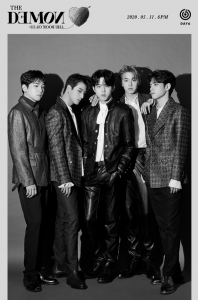
2020 was one heck of a ride. Despite the Virus-That-Shall-Not-Be-Named, the K-pop industry continued churning out hits, misses, and scandal, all while evolving and reaching new heights. While our Mid-Year Reviews and End-Year Reviews have been amazing as wrap-ups for the year in K-pop, this roundtable is all about Seoulbeats.
This month, we ask the writers: What were your favorite Seoulbeats articles of 2020? Each writer was allowed up to three selections.
Editors’ Note: The articles mentioned below, as well as countless others on the site, require lots of time and effort from the team. If you like our content, please consider supporting us at patreon.com/seoulbeats! We’ll be announcing other avenues for support soon, so stay tuned.
Rimi: Happy New Year, everyone! Good riddance to 2020, huh? Because it was a crazy year, I wasn’t able to follow as many releases as I’d have liked and relied heavily on Seoulbeats reviews to guide me. Two of my favorite reviews are those that led me to some of my favorite music and television this year: Xiao Qing’s “Day6‘s “Zombie” Is The Song You Never Knew You Needed” and Lynn’s “Human’s Need Each Other To Stay #Alive“. Perhaps fittingly in the era of the pandemic, both are about zombies.
In reviewing “Zombie”, Xiao Qing very aptly notes that the song provides much-needed comfort without making false promises, something I sorely needed. Indeed, “Zombie” despairs over a life without purpose, while putting up an upbeat, cheerful musical facade — something many of us no doubt found ourselves doing in 2020. In reviewing #Alive, Lynn drew fascinating parallels between the movie and our isolation during the pandemic. It sent me on a dystopian spiral. I’ve since watched #Alive, Train to Busan (finally), Search, Sweet Home, and more. My strongest recommendation? Alice in Borderland (Japanese).
However, I can’t list my favorite Seoulbeats articles without also referring to my favorite critical pieces. With an honorable mention to Isabella’s “Treasure‘s “Boy” Fails To Live Up To The Hype”, my favorite piece was Vivien’s “BTS Lose Their Way In “Map Of The Soul: 7”.” I came to K-pop three years ago through BTS, and they remain my ults. Yet, Vivien’s piece brought in sharp clarity everything I’d been thinking but was too afraid to vocalize because then I’d have to face reality: that perhaps their music doesn’t speak to me anymore. But songs like “Black Swan” and “Blue & Grey” give me hope, and I keep my fingers crossed.
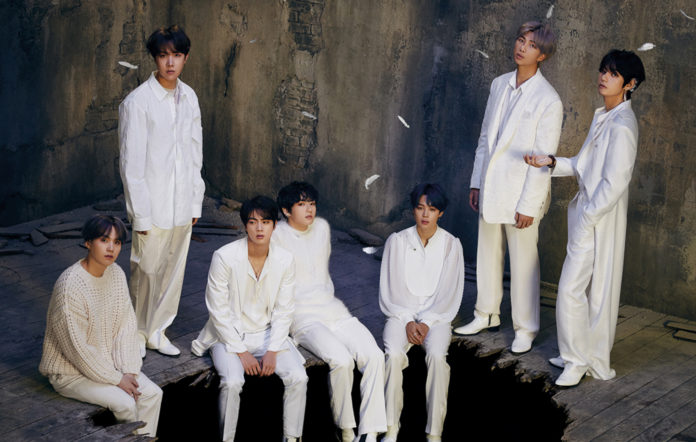
Renee: One of my favorite pieces from Seoulbeats this year (and one I often returned to during my writer-in-training days) is Siena’s “Yeehaw!: K-pop and the Aesthetics of the American West Collide.” The cowboy concept was something I only noticed in passing, and it wasn’t until I read the article that I realized there was so much more going on behind the borrowed look. It was, in fact, rife with history, opportunity, and risk, and the article itself is a unique take that could’ve only come from a genuine fan of the art. The thoughtfulness at play here is something I try to emulate both in my write-ups for the site and in my ongoing comprehension of K-pop in general.
I’m also a big fan of the reviews we put out, but Rimi’s wonderfully frank “The King: Eternal Monarch, Ep. 1-8: Watch for the Pretty, Not for the Plot” stood out to me, not only because it shone in a sea of weirdly rave reviews the show got, but because it confirmed what I was sure to be true: that the highly anticipated drama was nothing more than a pointless letdown. There is a certain comfort that comes with knowing there are people who also see what you see, and in this case, the feeling was elevated by the article’s precise and elegant writing.
Lastly, I’d like to give Lo’s “Side B: The Variety of GFriend” a shoutout for introducing me to GFriend’s delightful musical diversity. Admittedly, I used to be one of those chumps who dismissed the group’s songs as homogeneous fluff, but after reading this and giving them a listen, I’m proud to say that I (along with many others, I’d like to think) have been converted into a devotee—a Buddy if you will.

Pat: In the everything that was 2020, it was the simple K-pop things that I kept turning back to. One such song was Ha:tfelt‘s “Sweet Sensation,” which I only listened to once I read the review. K-pop may be known for it’s extra-ness, but it’s songs like these that remind us to breathe, which Qing captures well in her article.
While I thoroughly enjoyed GFriend’s “Apple” MV from the first watch (and second, and third), it came out at a time where I wasn’t able to read the lyrics. Needless to say, “Apple” is a departure from the GFriend we’ve known, and accompanying this change is a shift in the visuals. There were motifs that could easily be picked up (thanks, four semesters of Theology) but Siena’s analysis really helped contextualize the images to the song. P.S.: I can also say the same about Aastha’s review of Taemin‘s “Criminal.”
The editorial team probably expected this: the Yeehaw and K-pop article. As a reluctantly proud Texan, this was one of my favorite articles not just to read, but to edit. While most articles would probably stop at the aesthetics of us Yeehaws, Siena went deeper and addressed the Cowboy Myth. With America being a relatively young country, the myth-building that is inherent in its nation-building is an interesting mix. Tackling the Cowboy Myth while talking about K-pop is something I never expected, yet here we are. Thanks 2020, I guess.
Lynn: In a year where nothing went as planned, K-pop was one of my solaces. Other comforts were thriller and horror movies, which is why Siena’s “Train to Busan’s Enduring Cultural Legacy” was one of my favorite pieces of 2020. It served as a reminder of why and how I came to appreciate the zombie apocalypse genre through Train to Busan, but my newfound appreciation for the film can also be credited to how the article touches on the social critiques of Korean society incorporated in the film.
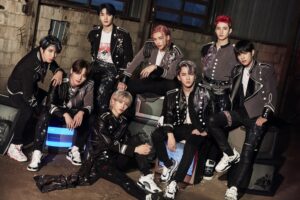
In terms of reviews, my two favorite articles were both MV reviews. Rimi’s “Suga Confronts his Past Self in “Daechwita”” broke down the MV’s connections to its lyrics, which I was grateful for because I was much too focused on the almost overwhelming amount of symbolism in the MV. The review also explains links to Agust D’s previous work, which I found interesting as someone who is not that familiar with his other releases. Victoria’s “Stray Kids Cooks Up a Dizzying MV with “God’s Menu,”” similarly, breaks down a very chaotic and complex MV and its discussion of details that went over my head had me in awe of the MV and the song itself. I started to appreciate “God’s Menu” as more than a catchy song on my running playlist, and it was what led me to check out Stray Kids’ other releases.
I’d also like to give honorable mentions to Siena’s “Yeehaw!: K-pop and the Aesthetics of the American West Collide,, which has already been discussed, as well as Renee’s “Turn the Beat Around: Recognizing Disco’s Past in Present Iterations!”
Siena: Piggybacking off Lynn’s mention, I really enjoyed Renee’s “Turn the Beat Around: Recognizing Disco’s Past in Present Iterations.” The piece did a great job examining the history of disco and how it manifests or is misrepresented in K-pop’s current disco trend. As a long time fan of disco, I was aware of its origins as a form of rebellious artistic expression for largely diverse and/or queer creators, prior to its mainstream whitewashing. However, Renee’s article gave me the depth I’d been lacking in my disco history. I also love how Renee illuminated that disco is about escapism and liberation simultaneously. The idea that revolution can and should be joyous is beautiful, not to mention a very appropriate vibe to take into 2021.

Speaking of queer representation (or lack thereof), as someone who identifies as queer, I have very complicated feelings about how Hallyu represents and interacts with the LGBTQ+ community. However, my feelings towards Rimi’s “Where Your Eyes Linger: K-dramas Finally Meet BL, but Is the Show Any Good?” are uncomplicated and overwhelmingly positive. The article contextualized the show within the BL (Boy’s Love) genre and the state of LGBTQ+ representation in South Korea, while still reviewing Where Your Eyes Linger on its own merits. Finding the right balance between social commentary and artistic criticism is tough, but Rimi nailed it.
Last but not least, I love when a review makes me reconsider a MV that I’d previously overlooked. That’s exactly what Lo’s “Somi‘s “What You Waiting For” Tells About Grief” accomplished. As Lo notes in the piece, the song itself isn’t special. However, her analysis helped me notice and appreciate the layers of visual meaning in “What You Waiting For” that, I’m slightly embarrassed to admit, I had completely missed during my first viewing!
Sara: Seoulbeats is my go-to source for keeping up with my favorite K-pop groups’ releases and finding new artists to check out. One of those artists is the band Hoppipolla, who I discovered through Anna’s album review, “Hoppipolla Brings Warmth and Comfort in “Spring to Spring.”” Their music was the calm and steadiness I needed during the tumultuous spring. Anna meticulously breaks down the ballads and takes care to distinguish each one while emphasizing the members’ incredible musicianship. As soon as I finished reading the review, I immediately went to listen and fell completely in love. I can confidently say that Hoppipolla is one of my favorite bands because of Anna’s piece.
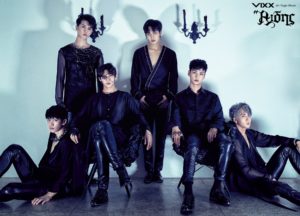
Pat’s “Music & Lyrics: Greek Gods and K-pop” is my dream analysis, as someone who also loves mythology. Since there is so much mythological material out there in the K-pop realm, I appreciated that Pat broke it down, focusing on very specific parts of Greek mythology. It was great to see some familiar tracks in a new light and discover others that I’m sure will take me further down the rabbit hole of K-pop and Greek mythology. I can’t wait to see if there will be any more discussions on K-pop and its use of mythology in a contemporary context!
Lastly, I loved Tássia’s interview with P1Harmony (“P1Harmony Want to Speak Their Truth”). This piece truly makes readers feel as if they’re the ones on the other side of the screen talking with P1Harmony. I had only heard of the rookie group in passing as they prepared for their debut, but Tássia’s words bring their personalities and their group dynamic to life through the little details (it’s impossible not to laugh during the “thick thighs” part). P1Harmony is definitely on my radar now because of this interview.
Gina: One of the many things I love about SB is how I learn so much from just one critical piece elaborating on a current day issue. First off in my list is Siena’s “BTS’ Grammy Nomination: How Important is it? And What Does it Mean for the Future of K-pop?” which was brilliant, honest, and eloquent. Not only did I feel less alone, but I also learned about the implications this could hold on BTS as a Korean group. She waded through the mixed feelings of being proud and doubtful, and laid it all out for us to chew on one at a time.
Next up is former editor Cjontai’s editorial “Should #BlackLivesMatter in K-pop?,” which dissected the impact that the BLM movement should increasingly have upon K-pop—a much-needed, but very new discussion that could only happen today. Cjontai was thorough and unafraid in explaining why it should be relevant within K-pop, and it helped open my eyes to the urgency at hand.
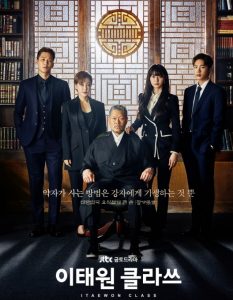
Lastly, Sadie’s review of “Itaewon Class: A Reflection of Society’s Vices and Virtues” changed me into a viewer: I’ll 100% be making time to watch this now. Initially not having any knowledge of the drama whatsoever, I read the review out of pure curiosity. But Sadie went deep into the roles, impact, and significance of the characters and their intricate, complex relationships. Not only that, she manages to cover the drama from beginning to end while leaving behind more mystery than spoilers. Definitely won me over!
Plus, I’d like to give an honorary mention to Rimi’s following review: “From Underdogs to Saviors: BTS Struggle with Ambitious Concepts in “ON” MV”—a true fan’s review that helps a muggle like me be able to appreciate and critique their work as well!
Esther: One thing I really appreciate about Seoulbeats is how the writers are not shy to voice out less popular opinions or point out that a comeback is underwhelming. As a reader, I really enjoyed seeing K-pop and entertainment taken seriously, and I’m glad to be a part of the conversation now!
As a huge fan of Show Me the Money, I really enjoyed Vivien’s look at Season 9. Her analysis of what makes this season better than its predecessors articulated for me what I loved about the show. I also love the witty title “Show Me the Money 9 Ep. 1-5: A Show With Nine Lives”, which is truly the cherry on top for me.

In today’s Cancel Culture, Rimi’s discussion of “YG: To Boycott or Not to Boycott” showed a frank and analytic side of boycotting, which gave me a lot of food for thought. I appreciated the balanced argument, thorough research, and personal take on this issue. It was interesting to learn about the history of boycotts in the K-pop industry, and the valid questions about what makes a boycott a true boycott.
Last on my list (but certainly not the least) is Isabella’s helpful breakdown of “Chen and the Consequences of K-pop Pregnancies.” Isabella helped to link these “scandals” and the public’s reaction to a larger issue of gender equality and class, which was very illuminating for me. The inhumane judgment on celebrities, with death threats and hate comments, has always been an issue that weighed on my heart (especially with the increasing suicide cases that 2020 has seen), so it was refreshing to see this issue brought up in light of Chen‘s situation.
Do you have a favorite 2020 Seoulbeats article? We’d love to hear from you!
(Images via JYP Entertainment, Big Hit Entertainment, Source Music, The Black Label, Jellyfish Entertainment, SM Entertainment, JTBC)


